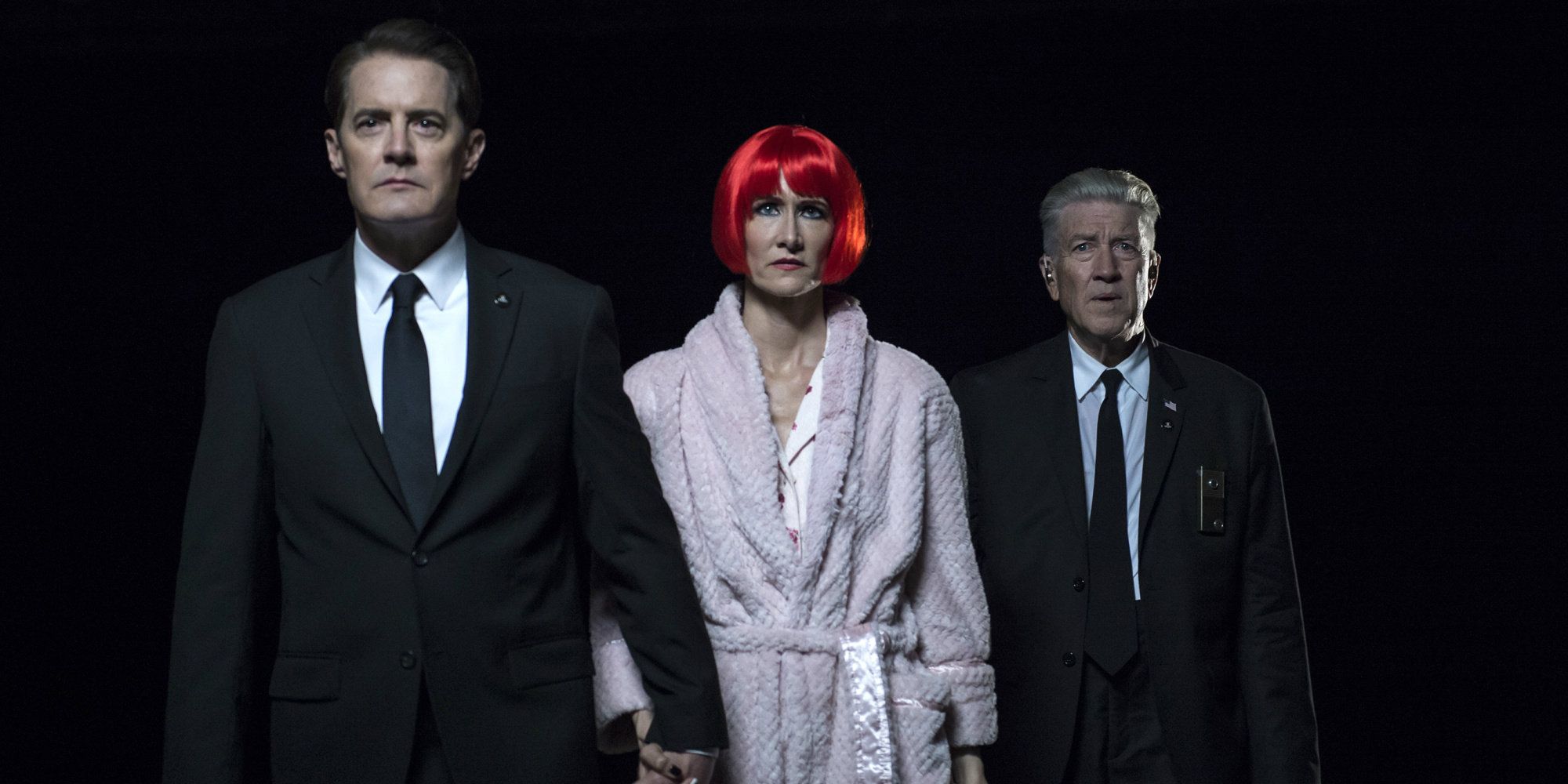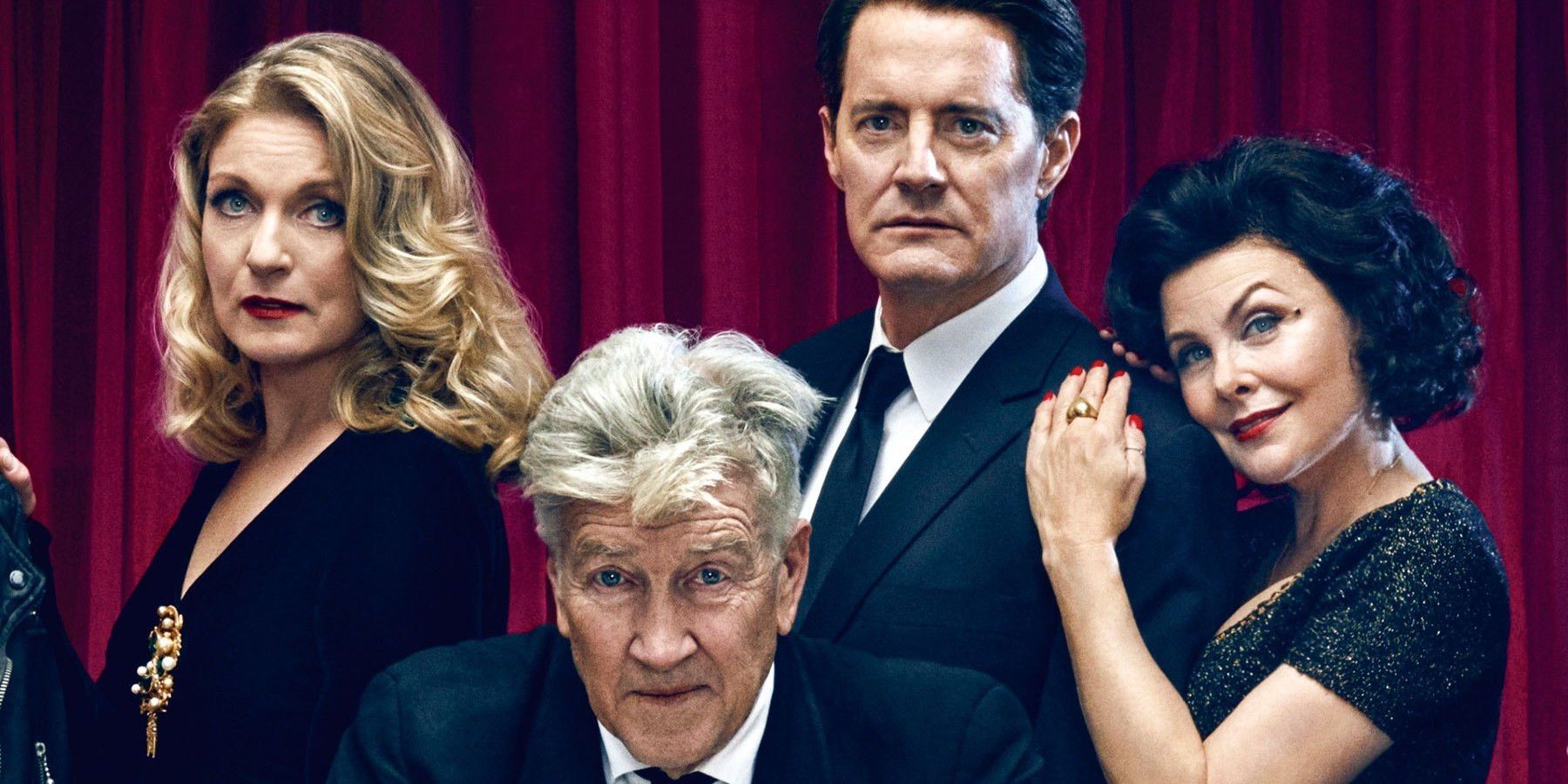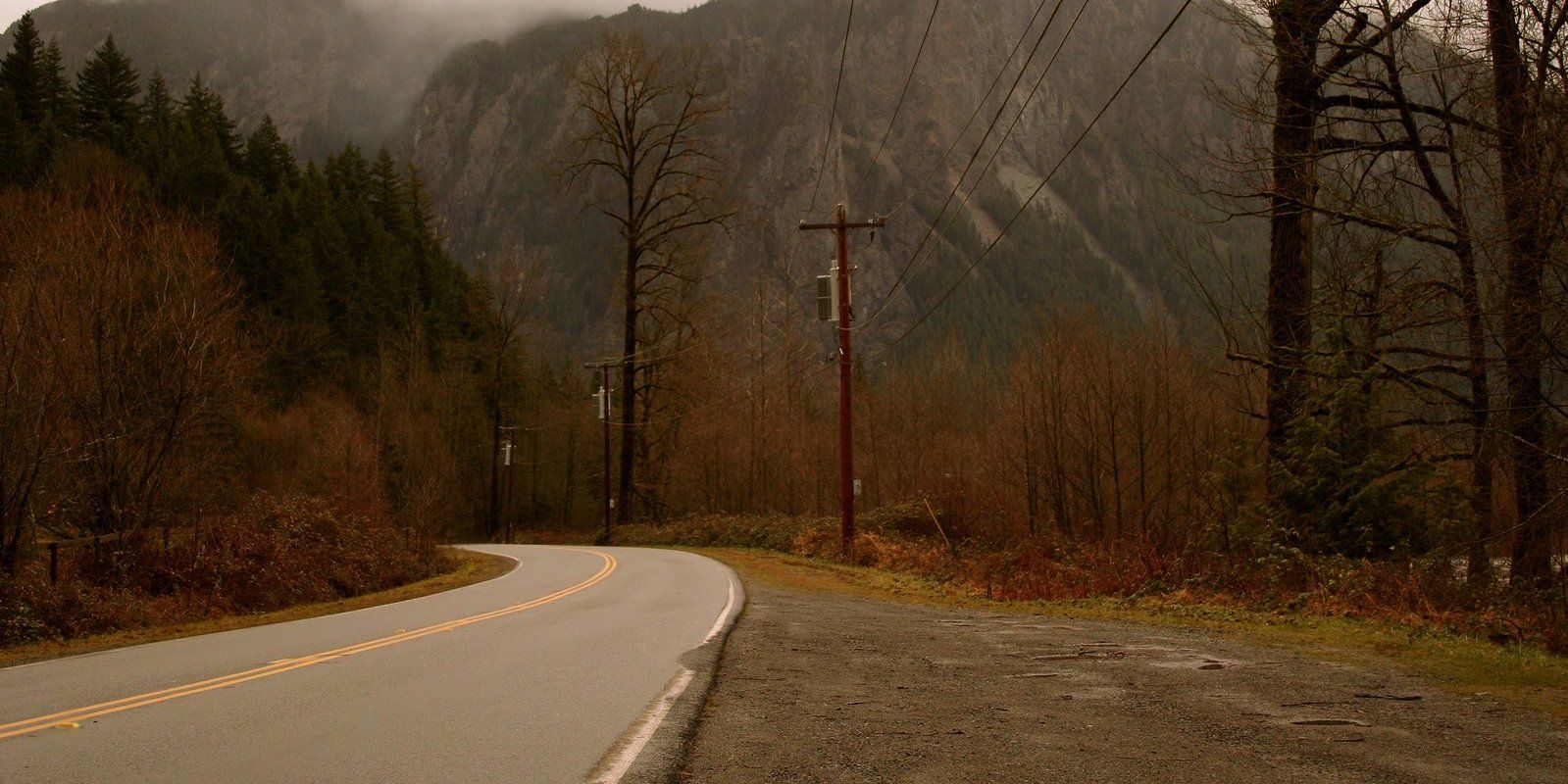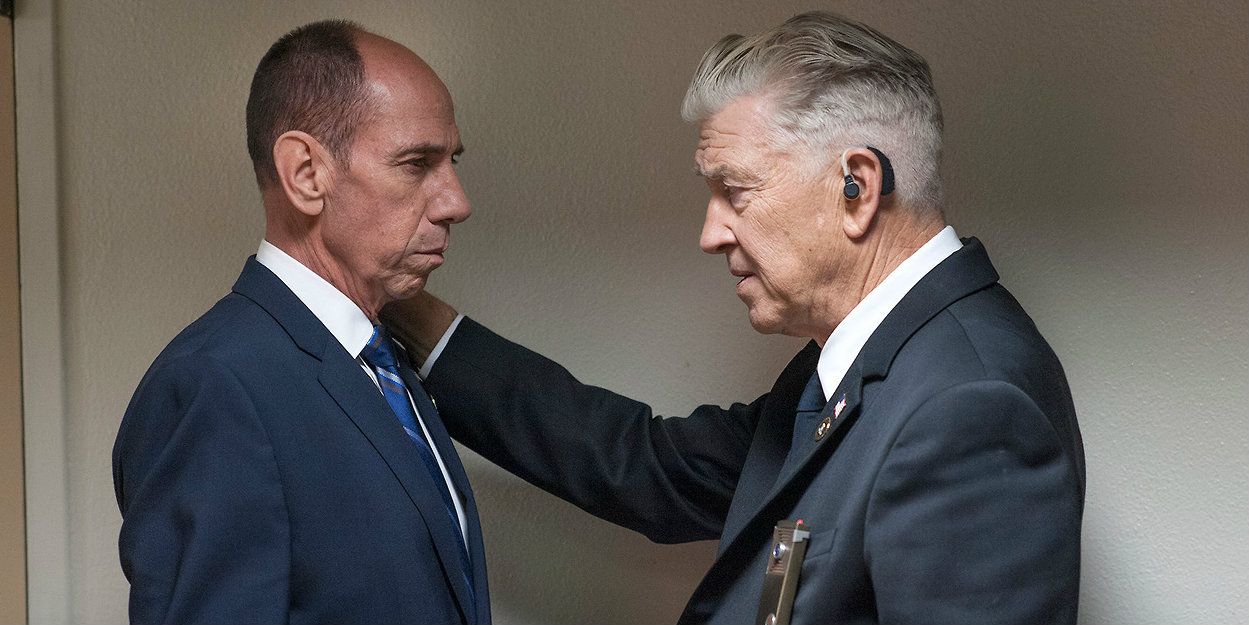With Twin Peaks again ending on a spectacularly uncertain note, the already polarized fandom wanted to know if there was yet another story left to tell. David Lynch confirmed that there were no talks about another run of episodes, and that Twin Peaks: The Return was meant to end the series on Lynch and co-creator Mark Frost's terms. However, due to the open-ended nature of the series and its stories, he did not rule out the idea of yet another run. It's not particularly likely for many reasons and largely unnecessary. The answers are in Twin Peaks' unending cyclicality.The original series initially ended on a question mark. The subsequent feature film Fire Walk With Me refused to answer any lingering questions and only created new mysteries. Finally, The Return resolved the story by reiterating the thesis of Twin Peaks: it's never over. No, we don't need another season of Twin Peaks because it will simply scald us again in attempt to teach us that it's an unending story of loops, trauma, and good and evil. It is not Lynch and Frost dangling a carrot in front of us, it's the fandom itself. There will be no answers, just repetition on the same themes; Lynch and Frost know this and proselytized about it throughout The Return. Time loops, repeated subplots from the original series and complete wrap-arounds to footage of the same establishing shots or scenes from Fire Walk With Me”it's all there.Lynch and Frost originally intended on never revealing who killed Laura Palmer. The show was about the town, the ever-changing face of evil, and the endless battle against it. Many of its mysteries were never meant to be solved, though the lack of conclusion sometimes also indicates that we already know the outcome. That's the case with Bobby Briggs' story in The Return. Despite being a murderous drug dealer in his youth, he lived up to his father's expectations; he turned his life around and became a model citizen and trusted deputy in the Sheriff's Department. And yet, as the theme goes, certain things looped around again. His daughter Becky is the perfect sum of her parents' worst attributes. Like Bobby, she was addicted to cocaine and was a thief with a penchant for blind-firing at people. Like Shelly, Becky was into bad boys and was stuck in a violent relationship. We do not receive any clear resolution to this plot line. By the end of Part 18, there's no indication that Bobby or Shelly are aware of what happened to Becky, which allows us to fill in the gaps based on what we've already seen. Becky's husband Steven killed her and then himself while he was high on cocaine. Both her parents were aware of the problems the couple had, but were careful in how they handled it. If they pushed too hard for Becky to leave Steven, it might only bring the pair closer together. (Indeed, Shelly's more active overture resulted in a stolen car and some scrapes.) The townspeople”particularly at the Fat Trout and the Roadhouse”knew there was trouble. Carl Rodd did his best to intervene, but, in the end, this was the story of Laura Palmer: everybody knew something was wrong but did nothing about it.At Laura's funeral 25 years earlier, Bobby caused a scene, indicting the town and himself in their wilful ignorance of Laura's frankly obvious downward spiral. While Becky didn't purposefully court death the way Laura did, the signs were still more than apparent. Again, now, with Becky, people simply tried to ignore it, and the results were the same. Bobby went on a mission to stop the drugs that he once peddled, but although he was successful, he couldn't stop the influx from Canada sent by Red - who was now also dating Bobby's ex, Shelly, who couldn't break her own cycle of being attracted to bad men. Either by way of karmic recompense or tragic irony, the town remained silent and the parents couldn't save their child. Of course, this is all just from what's inferred. The threadbare nature of answers and conclusive endings are a hallmark of Twin Peaks, and to keep expecting answers from a series that has repeatedly told you that they are never coming is a kind of masochistic Stockholm Syndrome.
We do not receive any clear resolution to this plot line. By the end of Part 18, there's no indication that Bobby or Shelly are aware of what happened to Becky, which allows us to fill in the gaps based on what we've already seen. Becky's husband Steven killed her and then himself while he was high on cocaine. Both her parents were aware of the problems the couple had, but were careful in how they handled it. If they pushed too hard for Becky to leave Steven, it might only bring the pair closer together. (Indeed, Shelly's more active overture resulted in a stolen car and some scrapes.) The townspeople”particularly at the Fat Trout and the Roadhouse”knew there was trouble. Carl Rodd did his best to intervene, but, in the end, this was the story of Laura Palmer: everybody knew something was wrong but did nothing about it.At Laura's funeral 25 years earlier, Bobby caused a scene, indicting the town and himself in their wilful ignorance of Laura's frankly obvious downward spiral. While Becky didn't purposefully court death the way Laura did, the signs were still more than apparent. Again, now, with Becky, people simply tried to ignore it, and the results were the same. Bobby went on a mission to stop the drugs that he once peddled, but although he was successful, he couldn't stop the influx from Canada sent by Red - who was now also dating Bobby's ex, Shelly, who couldn't break her own cycle of being attracted to bad men. Either by way of karmic recompense or tragic irony, the town remained silent and the parents couldn't save their child. Of course, this is all just from what's inferred. The threadbare nature of answers and conclusive endings are a hallmark of Twin Peaks, and to keep expecting answers from a series that has repeatedly told you that they are never coming is a kind of masochistic Stockholm Syndrome.
Admittedly, there are plenty of fans who simply want more Twin Peaks out of love for the work, though there is a large consignment who were understandably unsatisfied and desire the many unresolved strings tied up satisfactorily if not conclusively. They can be split into the two diametrically opposed camps: the ones excited by the turns along dark American highways and the ones waiting for the dim neon of a motel sign like a lighthouse at the end of the shore.
For lovers of the journey, a fourth go-around may only again loop or remix familiar arcs, but given the rapidly aging cast and the likelihood of a four year long minimum wait, it would be with an even smaller pool returning than before. While Lynch and Frost may add flourishes, we will end up in the same place as we had many times before: Cooper is lost, Audrey's fate is unknown and Laura is doomed to soul-deep suffering. With Judy, Twin Peaks confirmed that there is always a greater evil out there, and that those who fight it will sacrifice their lives for it while innocent people are constantly used as pawns or chattel.
On the other side, there is a natural yet complex reaction to The Return. We can love and admire the artistry, but still be left hollow by the final credits. Lynch's visual lexicon of nightmarish metaphor disguised in the mundane, partnered with snuggly held clues and subtle answers that are rarely decisive makes Twin Peaks strangely truer to life than most straight-forward narratives. The open-ended plots are both detailed and vague, yet, by its ending, seems strangely inevitable. But that doesn't always mean it's satisfying.
David Auerbach believes the final hour takes place in a dream-cage; we believe it is part of an infinitely branching timeline”a plan by Cooper, Laura and the Fireman that may have gone awry. Certainly, if either of these theories hold any truth it would only be in the questionable middle. Much of the fun of the show is the uncertainty. Lynch has defined his career by asking questions of the audience through his work. The Return's great evil is a transliteration of the Mandarin word for "explanation" for a reason. For Lynch, a clear answer isn't any fun. It's bereft of creativity and no longer makes the television or film experience communal; rather, it would just be a lecture.
It's doubtful that anyone expected things to be wrapped up in a neat little package, but we it doesn't change the fact that we did not get enough time with the characters we loved. There was no real time for Cooper to process his return to Twin Peaks: no Harry there to greet him, and no time to account for all the evil Mr. C did in his name and with his face. Similarly, Audrey was isolated from the others in a brief, unanswered subplot. One would have assumed that the red pumps that reminded Cooper of Audrey and were so strongly embedded into his subconscious that it nearly shook him from his waking coma would've amounted to at least a mention by the end of the series. Hell, Cooper himself was essentially absent for most of the series, trapped in the body of Dougie Jones.
There are a myriad of unsolved mysteries that seem primed for elaboration in a fourth season. What was happening in Audrey's story? Where is the final missing page of Laura's diary and what does it say? How is Annie? Given that Lynch and Frost went into this project viewing it as a one-off conclusion to a bizarre saga which saw variations on the same stories and themes, two things become clear: that like real people, these characters are caught in a loop created by their choices and circumstances, and that this was the natural endpoint the two designed for the story.
If further unspooled, there's no reason to think a fourth season would offer the conclusions that the series has made clear it will never provide. Twin Peaks is a puzzle with strategically misplaced pieces that we're are not meant to find. We're meant to fill in ourselves. We don't need a fourth season because Twin Peaks is ours now and probably always was. It's a communal story. Lynch said that the series doesn't have an ending. It's not just because of the symbiotic nature of good and evil, but because of the discussion it has created and the longevity fans have bestowed upon it. With Lynch and Frost putting their final thoughts in order, they're now fully handing it over to us to fill in the fuzzy grey zones.



